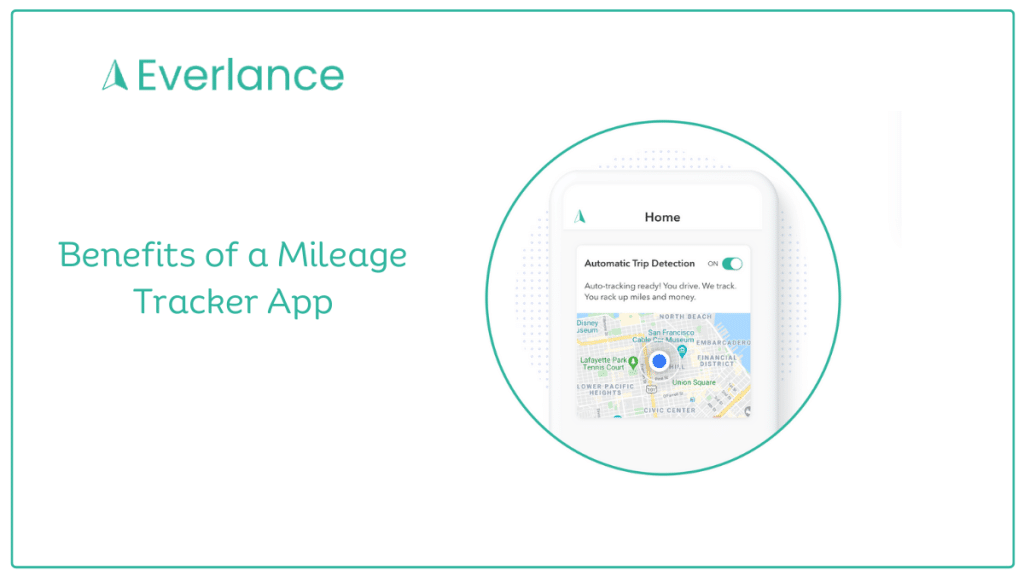Key Takeaways:
- Mileage tracker apps help you accurately track business miles driven, which can lead to significant tax deductions.
- These apps provide automatic mileage tracking, eliminating manual record keeping.
- Mileage data can be easily exported for taxes or reimbursement purposes.
- Some apps sync mileage data with accounting software, further simplifying expense tracking.
- Mileage trackers help optimize routes and cut down on unnecessary driving.
Using a mileage tracker app provides many benefits for rideshare drivers, delivery drivers, salespeople, field technicians, and other professionals who use their personal vehicle for business purposes. With an automatic mileage tracker, you no longer have to manually track miles driven for tax or reimbursement purposes. The app runs passively in the background, using GPS to accurately log each business trip.
Tax Deductions
One of the biggest benefits of a mileage tracking app like Everlance, considered by many to be the best mileage tracker app, is the ability to capture tax deductions. The IRS allows taxpayers to deduct $0.59 per mile driven for business purposes. This deduction covers gas, vehicle depreciation, insurance, maintenance and repairs.
Without detailed mileage logs, you miss out on claiming these substantial tax deductions. A mileage tracker eliminates guesswork and provides an audit-proof log for write-offs.
Automatic Tracking
Mileage tracking apps take the hassle out of logging miles. There is no need to remember to start and stop tracking or take notes on paper. The app just runs in the background and detects when you are driving.
As soon as you get in the car, the mileage tracker app will begin automatically recording your route with zero effort on your part. Advanced apps even do this without draining your phone’s battery.
Simple Expense Reporting
At tax time, all your business mileage can be easily exported from the mileage tracking app. The timestamped trip log provides odometer readings and a detailed report of miles driven for work.
Many apps also let you categorize business trips. For example, you can tag drives separately for different clients or purposes. This makes generating expense reports a breeze.
Accounting Software Integration
Top mileage tracker apps integrate directly with popular accounting software like QuickBooks and Xero. Mileage data flows directly into your accounts, eliminating duplication.
Expenses can be automatically categorized for effortless end-of-year tax preparation. As an added benefit, integrated apps prevent mileage cheating and exaggeration.
Optimized Routing
Mileage tracker apps analyze your driving patterns over time. Many provide features that optimize routes and reduce unnecessary driving.
For example, apps can detect frequent trips and suggest more efficient routes. Business owners can also spot redundant drives taken by employees. This allows companies to streamline logistics and cut costs.
Other Features
- Reminders to track mileage
- Cloud backup of mileage logs
- Maps showing driving routes
- Mileage reports by date range
- Export options like PDF or Excel
- Dashboard showing mileage stats
- Email receipts for mileage reimbursement
Frequently Asked Questions
What vehicles can I use mileage tracker apps in?
Mileage tracker apps work in any vehicle – car, truck, van, motorcycle, etc. Tracking works the same no matter how many vehicles you drive for business.
Do I need to keep other records?
Yes, the IRS still recommends keeping a mileage logbook as backup evidence. Take periodic photos showing your odometer reading too.
Can I import old mileage logs?
Usually yes. Most apps let you input previous trips to sync historical business mileage.
Do I need a paid version?
Free versions of mileage tracker apps may limit features. Paid versions provide advanced reporting and integrations.
What does a mileage tracker app cost?
Paid versions range from $5-$15/month. Most apps offer free versions with basic tracking ability.

